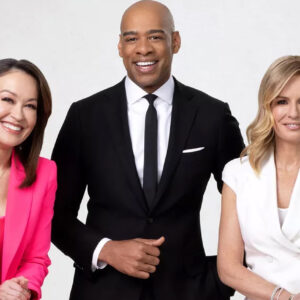Hayden Panettiere has recently drawn significant attention and concern following what many have described as an “uncomfortable” and “sad” interview.
The actress, known for her roles in popular television series and films, appeared to be in a vulnerable state during the discussion, prompting a wave of reactions from fans and industry observers alike.
The interview has raised eyebrows and sparked conversations about the ethics of media interviews, particularly when they involve individuals who may be experiencing personal challenges.
In the interview, Panettiere spoke candidly about her life experiences, including her struggles with mental health and the pressures of fame.
However, viewers noted that her demeanor seemed distressed and uneasy, leading many to feel that the context of the interview was inappropriate given her current state.

Critics quickly voiced their opinions on social media, labeling the situation as “complete exploitation.” This sentiment reflects a growing awareness of the responsibilities that come with interviewing public figures,
especially those who may be navigating difficult times.
The concerns surrounding Panettiere’s interview are not unfounded.
In an age where mental health discussions are becoming increasingly prominent, the boundaries of how and when to engage with such topics are crucial.
Media professionals have a duty to ensure that they create a safe environment for their subjects, particularly those who have been open about their struggles.
The pressure to deliver sensational content can often lead to a disregard for the emotional well-being of interviewees, a trend that many are calling out in light of Panettiere’s recent appearance.
As a former child star, Hayden Panettiere has been in the public eye for many years, which adds another layer of complexity to her situation.
The transition from child stardom to adult roles can be fraught with challenges, and Panettiere’s experiences are indicative of the struggles that many young actors face.

Throughout her career, she has been vocal about the toll that fame has taken on her mental health, including experiences with anxiety and depression. This history makes her current state in the interview even more concerning, as it raises questions about whether she was adequately supported during the process.
Many fans expressed their disappointment not just in the interview itself, but in the broader media landscape that often prioritizes ratings and attention over the well-being of individuals. The idea that a person’s struggles can be sensationalized for entertainment purposes is troubling and highlights a need for more ethical considerations in journalism. Viewers want to see authentic conversations about mental health, but they also want to ensure that those discussions are handled with care and respect.

Critics have called for a reevaluation of how media outlets approach sensitive topics, particularly when it comes to celebrities who may be vulnerable. The emphasis should be on fostering genuine dialogue rather than pushing for shocking revelations or dramatic moments. This perspective is particularly relevant in today’s climate, where discussions about mental health are increasingly prominent, and public figures are beginning to share their stories in a more open and honest manner.
In addition to the ethical implications, the public response to Panettiere’s interview underscores a broader societal desire for empathy and understanding. Fans have rallied around her, expressing support and concern for her well-being. This collective reaction highlights the importance of community and the role that public support can play in helping individuals who are going through tough times. It also reflects a shift in how society views mental health discussions, moving toward a more compassionate and supportive framework.

The backlash against the interview may prompt a larger conversation about the responsibilities of interviewers and media professionals. As audiences become more aware of the potential harms associated with exploitative practices, there is an opportunity for the media to evolve and prioritize the mental health of their subjects. This could lead to more thoughtful and responsible journalism that emphasizes empathy over sensationalism.

In conclusion, Hayden Panettiere’s recent interview has ignited a crucial discussion about the treatment of public figures in media, especially when they are grappling with personal challenges. The discomfort expressed by viewers reflects a collective desire for ethical considerations in journalism, as well as a growing understanding of the importance of mental health conversations. As the industry continues to navigate these complexities, it is vital that both media professionals and audiences advocate for a more compassionate approach to interviews, ensuring that the well-being of individuals like Panettiere is prioritized over the pursuit of sensational stories. This situation serves as a reminder that behind every celebrity is a human being with their own struggles, deserving of respect and understanding.
Follow us to see more useful information, as well as to give us more motivation to update more useful information for you.





